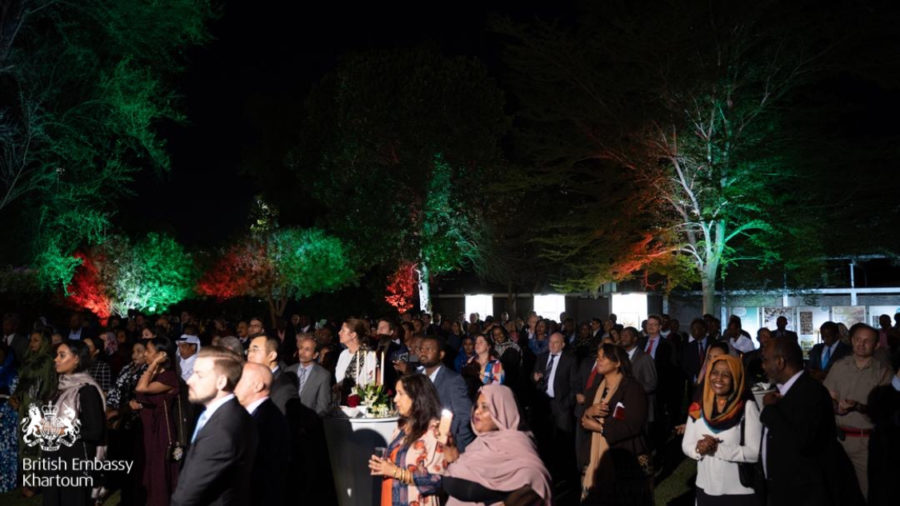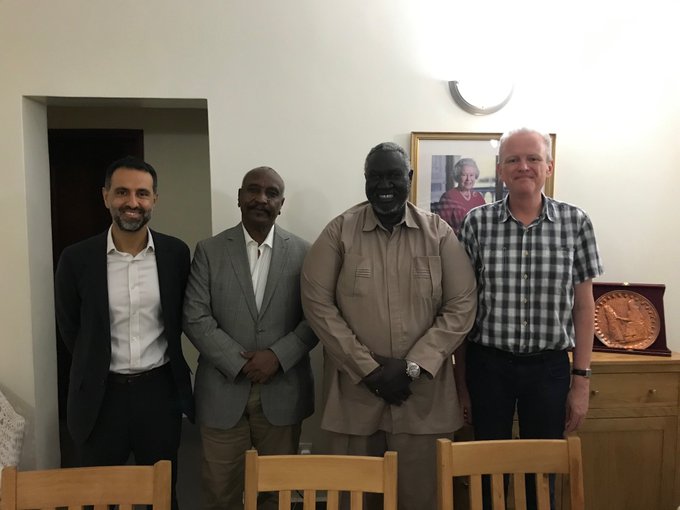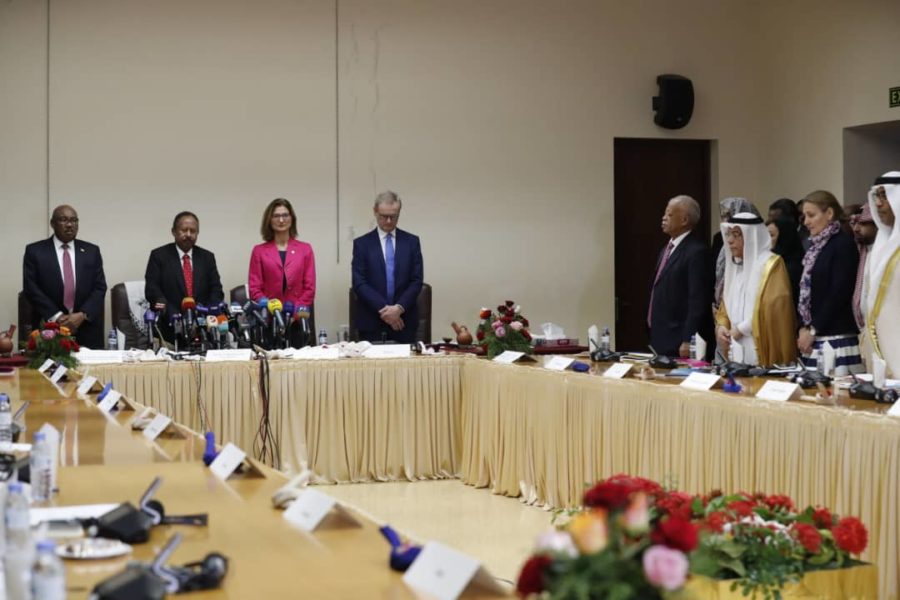British Ambassador to Sudan
Part of UK in Sudan
30th December 2019 Khartoum, Sudan
Building the new Sudan 
With the 17 August agreement, Sudan entered a new era. The signing of a constitutional charter to govern the transition, the formation of a Sovereign Council and the appointment of Prime Minister Hamdok and his civilian cabinet puts new, primarily civilian leaders in charge of running the country. The change has been immediate.
Prime Minister Hamdok’s government’s vision for Sudan, one that fulfils the revolutionary slogan of “freedom, peace and justice” is clear. It has worked to promote human rights and freedoms – through the repealing of the Public Order Law, agreement to open a UN Office for Human Rights and commitment to protect media freedom. It has prioritised peace talks, which are making progress in Juba. And it has started work on justice, through the dissolution of the NCP and formation of an independent investigation into the 3 June atrocities.
The embracing of new freedoms has been hugely positive and welcome. It is the most tangible benefit of the change. And it must be irreversible. The British Embassy welcomed the change we are seeing. I hosted a party for many of our Sudanese friends to celebrate the change and the building of a new Sudan.
We have also been working hard to support the peace talks. I visited Juba and Addis Ababa in the last few weeks to meet with all of the leaders of the movements taking part in the talks. I urged them to recognise the change Sudan was experiencing by working in partnership with the new government to reach a comprehensive peace deal that addresses the root causes of the conflicts. I also urged them not to pit the peace process and the national transition in competition with each other. The appointment of civilian governors and the formation of a transitional legislative assembly are vital for the success of this transition and should not be delayed any further.

Issues of justice are arguably the most complicated. Justice is not only needed for the martyrs and victims of the revolution, but it’s also needed for all those who suffered during the thirty years of the former regime’s rule. These efforts will need to find a balance between meeting the needs of victims and healing the rifts in Sudan in a way that builds reconciliation and social harmony. Appointing a Transitional Justice Commission soon, as mandated in the Constitutional Charter, would be an important first step.
Justice is not just a legal issue. Social justice, meaning economic empowerment, rooting out poverty and providing equality of opportunity for all, must also be a key feature of the transition. But this is one of the most difficult challenges, as Sudan’s economy has been bankrupted and distorted by the former regime. Huge debts, limited government revenues and major budgetary deficits mean there are no easy choices here. The Government will have to implement some major economic reforms to increase revenue and reduce expenses, particularly in areas like fuel subsidies. This is the only way that it can ensure enough government resources to spend on essential social services such as health and education. But to do this, the new Government will need help.
This is why the UK has worked with other key partners to establish and drive the “Friends of Sudan” group. This group was set up to support the change Sudan is witnessing. It had met previously in Washington, Berlin and Brussels, but met for the first time in Khartoum on 11 December. Prime Minister Hamdok and Finance Minister Elbadawi led for the government and set out the framework for their economic plan, which international partners broadly supported. This is all with a view to hosting a major international donor conference in April 2020, at which financial assistance can be pledged to support Sudan stabilise the economy and begin to implement the social justice needed to make the revolution a success.

Image: SUNA
This transition is still very new. Much has already been achieved. But the popular demand for even quicker delivery of benefits and changes from the civilian government is intense. The ambitions for this transition are huge, so it is natural that the expectations will also be huge. Managing this demand and the growing expectations of a newly liberated people will be a challenge. The UK will continue to work with our partners to do everything we can to support the success of this transition.









